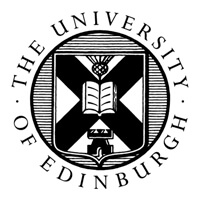fees waived
Electronics and Computer Science, BEng (Hons)
The University of Edinburgh, United Kingdom
Ranking in UK
Engineering: Electronic and Electrical
Computer Science and Information Systems
Data Science and Artificial Intelligence
Costs
food & rent S$18.5k / year
Entry requirements
Scholarships
Limited quantity
Information
Code
Intakes
Website (External)
Programmes
Information
Duration
2030
Electronic and electrical systems are foundational to modern technologies, from smartphone processors to wind turbine power electronics. In an era of complex, high-speed devices, engineers must master the design and application of hardware and software for general-purpose and embedded computer systems. Electronics and computer science form a compelling joint honours combination, driving innovations in computer design and communications over the past 50 years. Students require a solid grasp of physics, teamwork, and problem-solving skills, leading to careers in machine learning, medical technology, transportation efficiency, safety systems, surveillance, entertainment, wireless communications, manufacturing, and renewable energy.Our programme benefits from industry ties through an Industrial Liaison Board, shaping a curriculum with research-led teaching from leading academics at Edinburgh. It offers strong career prospects, internships, and final-year placements, alongside a balanced mix of theoretical and practical skills through state-of-the-art labs with industry-standard tools. All degrees are accredited by the Institution of Engineering and Technology, providing flexibility for specialised studies. Our supportive community, including the Electronics After Hours Club, fosters extra-curricular projects, enhanced by Edinburgh's vibrant network of related companies.
A local representative of The University of Edinburgh in Singapore is available online to assist you with enquiries about this course.

